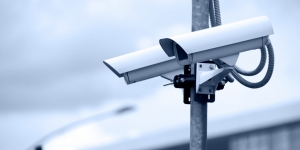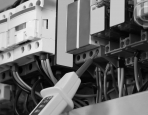Installers in Valley Stream: Protecting Your Business with Expert Precision
Top-notch Security Camera Installers in Valley Stream: Protecting Your Business with Expert Precision
Are you a business owner in Valley Stream looking to enhance the security of your premises? Look no further. Our team of top-notch Professional Business Security Camera Installers s is here to provide expert precision and protect your business.
At Techsonduty, we understand the importance of a secure and safe environment for your company. That’s why we offer highly experienced and skilled installers who know the ins and outs of security camera systems. With our state-of-the-art equipment and cutting-edge technology, we ensure that your business is fully protected.
Our installers are experts in identifying the most vulnerable areas of your property and strategically placing cameras to provide maximum coverage. Whether it’s indoor surveillance, outdoor security, or a combination of both, we have the expertise to meet your specific needs.
We pride ourselves on our professionalism and attention to detail. Our team will work closely with you to understand your requirements and recommend the best solutions for your business. We strive to exceed your expectations with our reliable and efficient service.
Protect your business with expert precision. Contact us today to schedule a consultation with our top-notch security camera installers in Valley Stream.
The importance of Professional Business Security Camera Installers
In today’s world, where security threats are ever-present, it is crucial for businesses to invest in effective security measures. One of the most effective ways to enhance the security of your business is through the installation of security cameras. Security cameras act as a deterrent to potential criminals and provide valuable evidence in the event of a security breach.
Having security cameras installed not only protects your assets but also creates a sense of safety for your employees and customers. It sends a message that you take security seriously and are committed to providing a secure environment. Additionally, security cameras can help you monitor employee behavior, prevent theft or vandalism, and improve overall productivity.
While it may be tempting to install security cameras yourself, hiring professional security camera installers offers numerous benefits. Professional installers have the knowledge and expertise to assess your specific security needs and recommend the most suitable camera systems for your business.
By hiring professionals, you can ensure that the cameras are strategically placed to provide maximum coverage. Professionals understand the vulnerabilities of different areas in your premises and can install cameras in locations that offer the best visibility. This ensures that blind spots are minimized, and potential threats can be detected early.
Professional installers are also well-versed in the latest security camera technology and can recommend cameras with advanced features such as motion detection, night vision, and remote access. They can integrate the cameras with your existing security systems, such as alarms or access control systems, to create a comprehensive security solution for your business.
Factors to consider when choosing Professional Business Security Camera Installers in Valley Stream
Choosing the right security camera installer is crucial to the success of your security system. Here are some factors to consider when selecting a security camera installer in Valley Stream:
- Experience and Expertise: Look for installers with a proven track record and extensive experience in installing security camera systems. They should have a thorough understanding of different camera types, installation techniques, and industry best practices.
- Reputation: Research the reputation of the installer by reading reviews and testimonials from previous clients. A reputable installer will have positive feedback and a strong reputation for delivering high-quality installations.
- Licensing and Certification: Ensure that the installer is licensed and certified to perform security camera installations. This ensures that they meet the necessary standards and regulations, providing you with peace of mind.
- Customization: Look for installers who offer customized solutions tailored to your specific security needs. They should be able to assess your premises, identify vulnerabilities, and recommend the most suitable camera systems for your business.
- Customer Support: Consider the level of customer support offered by the installer. A reliable installer should be responsive to your inquiries, provide ongoing maintenance and support services, and offer warranties on their installations.
When it comes to security cameras, there are several different types to choose from, each with its own unique features and benefits. Understanding the different types can help you make an informed decision when selecting cameras for your business. Here are some common types of security cameras:
- Dome Cameras: Dome cameras are one of the most popular types of security cameras. They are named for their dome-shaped housing, which makes it difficult for potential intruders to determine the direction the camera is facing. Dome cameras are versatile and can be used for both indoor and outdoor surveillance.
- Bullet Cameras: Bullet cameras are long and cylindrical in shape, resembling a bullet. They are typically used for outdoor surveillance due to their weatherproof design. Bullet cameras are known for their long-range capabilities and are ideal for monitoring large areas such as parking lots or warehouses.
- PTZ Cameras: PTZ (Pan-Tilt-Zoom) cameras offer the ability to pan, tilt, and zoom, providing greater flexibility in monitoring. These cameras can be controlled remotely, allowing you to adjust the camera’s position and zoom in on specific areas of interest. PTZ cameras are commonly used in areas that require active monitoring.
- Wireless Cameras: Wireless cameras offer the advantage of easy installation and flexibility in camera placement. They use Wi-Fi or other wireless technologies to transmit video signals, eliminating the need for extensive wiring. Wireless cameras are suitable for both indoor and outdoor surveillance and can be easily moved or repositioned.
- IP Cameras: IP (Internet Protocol) cameras are digital cameras that use the internet to transmit video footage. They offer high-resolution video quality and can be accessed remotely using a computer or mobile device. IP cameras are ideal for businesses that require real-time monitoring and remote access to camera feeds.
Once you have selected a security camera installer, it’s important to understand the installation process and what to expect. While the specifics may vary depending on the complexity of your security system, here is a general overview of the installation process:
- Site Assessment: The installer will conduct a thorough assessment of your premises to identify potential vulnerabilities and determine the best camera placements. They will take into account factors such as lighting conditions, potential blind spots, and the layout of your property.
- Camera Placement: Based on the site assessment, the installer will strategically place the cameras in locations that provide optimal coverage. They will ensure that the cameras are positioned to capture clear and unobstructed images, minimizing blind spots.
- Wiring: If your cameras require wiring, the installer will carefully install the necessary cables to connect the cameras to the recording system. They will hide the cables as much as possible to maintain a clean and professional appearance.
- Camera Configuration: Once the cameras are installed, the installer will configure the cameras to your specific requirements. This includes adjusting camera settings such as resolution, frame rate, and motion detection sensitivity. They will also ensure that the cameras are integrated with any existing security systems or software.
- Testing and Training: The installer will thoroughly test the cameras to ensure they are functioning properly and capturing clear images. They will also provide training on how to use the camera system, including accessing camera feeds, reviewing footage, and adjusting settings.
- Maintenance and Support: After the installation, the installer should provide ongoing maintenance and support services to ensure the continued performance of your security system. This may include regular inspections, software updates, and troubleshooting assistance.
Tips for Maintaining and Optimizing Your Security Cameras
While professional installers



